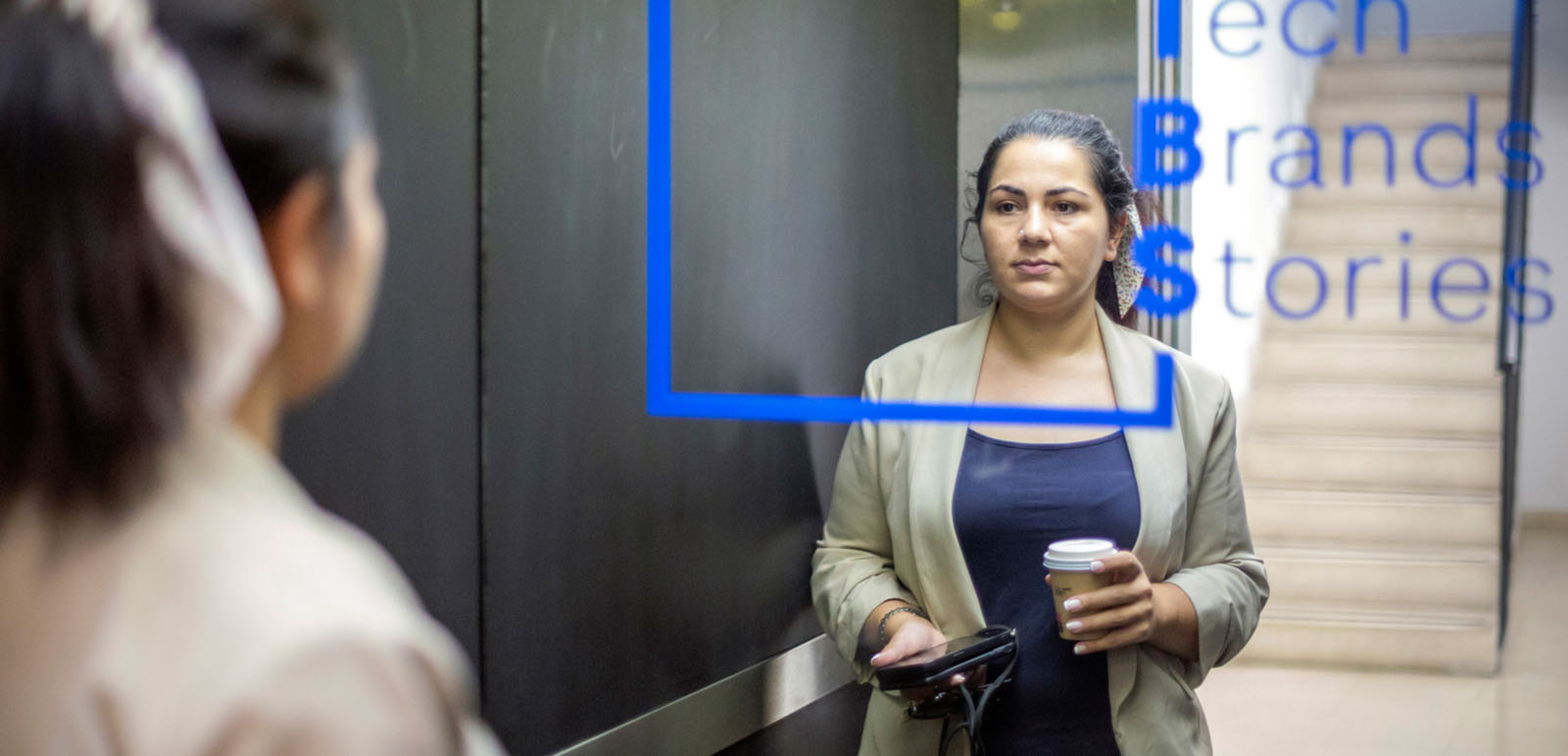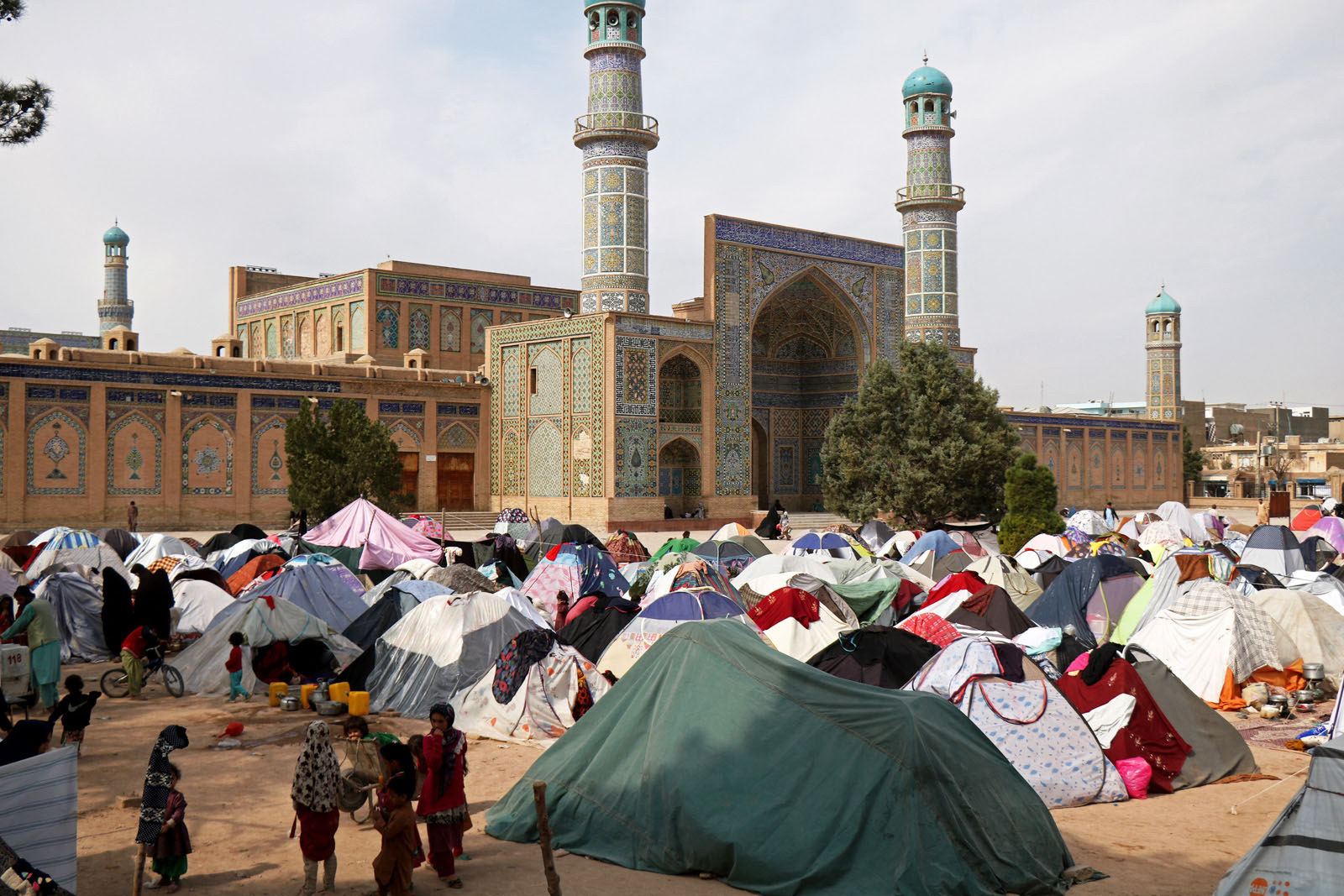‘I’m going to be the first female president of Afghanistan’
Khadija Amin, a news anchor who fled from the Taliban to Spain, is determined not to let the world forget the plight of Afghan women
–

“I’m going to be the first female president of Afghanistan one day,” said Khadija Amin, sipping a glass of rioja on the terrace of her home on the outskirts of Madrid. The 30-year-old journalist and mother of three was an anchorwoman for state-run Radio Television Afghanistan (RTA) before the Taliban took control of Kabul on August 15, 2021, and barred her from the newsroom. She is a refugee living in the Spanish capital’s commuter belt, and her prediction seems extravagant but not inconceivable. For now, however, Amin is focused on more immediate concerns: “I am worried the whole world will forget Afghanistan,” she said.
While the world watched in horror as Hamas militants launched an unprecedented attack on Israel on 7 October, a 6.3-magnitude earthquake hit the west of Afghanistan. A further devastating quake of the same magnitude hit in the early hours of 11 October with a total death toll of between 1,000 and 3,000 people, but the disaster was not a major story for the global media.
“The response from the international community has been slow, partly because of other events but also because of the reluctance to deal with the Taliban,” Amin said. “For the surviving women in the Herat region whose men have been killed, life will get much harder because the Taliban will not allow them to work, so how will they get money for their children and themselves? The Taliban don’t think about this.”
One of four women in a department of 14, Amin had been the only female journalist at RTA to attend daily press conferences at the presidential palace and to be invited on high-profile press trips. “I was more determined than my female colleagues,” she said. When the Taliban seized control of the country and its infrastructure, the TV station where Amin had worked for more than a year was surrounded by armed Taliban guards. She pushed through them, receiving death threats as she went, to argue the case to her boss for the continuing presence of female presenters on national TV. When she was denied, she knew she couldn’t stay in Kabul. “I was hoping the Taliban had changed, but I realised then they hadn’t,” she said in fluent English, one of her five languages.
Amin accepted an invitation by the Spanish Ministry of Defence and, on 23 August 2021, was out of Afghanistan along with 2,400 others. No less determined in exile, she is turning her personal struggle into a fight for the rights of all Afghan women, using any tools available to her. “I am a woman who cannot be silent,” she laughed.
She is currently working on two documentaries for a streaming giant she has been asked not to name. These would take her back to Afghanistan, a dangerous mission she plans to make concealed in a burqa with the help of local journalists. “I know it’s a risk [returning to Afghanistan] because everybody knows me there, but I want to return if I get the chance. I would have to do it undercover because if the Taliban found out I was there, something could happen to me.”
Only on the subject of her three children, an eight-year-old and two six-year-old twins, at home in Afghanistan, does Amin show fear. She wants them to join her in Spain. Initially, her ex-husband agreed, then he backtracked and now maintains she has no claim to them. Mothers’ names were omitted from birth certificates until 2020, when the previous Afghan government changed the law in response to the #Whereismyname campaign. Amin has no way of proving the three boys are hers. “It is my son’s ninth birthday soon,” she said. “I was hoping they would be here now with me.”
Amin was hospitalised for a fortnight during a mental health crisis shortly after her arrival in Madrid in 2021. She is now supported by a feminist network of Afghan women and Spanish journalists. Her work gives her a reason to be optimistic, despite the unbearable prospect of not being able to see her three sons again.

Throwing herself into activism, Amin has emerged as a figurehead in Spain for the struggle of her people, receiving an award at the prestigious Cervantes Institute in Madrid on 5 October from the feminist association El Club de los 25 in the name of all Afghan women “for not giving up”. She has held meetings with various members of the Spanish Congress, including Spain’s deputy prime minister Carmen Calvo, and has spoken at more than 100 conferences across Spain about the predicament of Afghan women since the Taliban takeover.
“I miss my job as a presenter, but whenever I am writing or talking about the situation for women back home, I feel as though I am fighting alongside them,” she said. “We are not the same kind of woman now as during the Taliban’s first regime. We refuse to accept what is happening.”
Within a month, the newly established Islamic Emirate government had replaced the Ministry of Women’s Affairs with the Ministry for the Propagation of Virtue and the Prevention of Vice. Just over a year later, in December 2022, it issued a ban on local women from working with non-governmental organisations, prompting international NGOs to suspend operations in the country, leaving Afghan women isolated from each other and the outside world.
“Violence in the home has escalated because there is no one to report it to. Many more women are now contemplating suicide because they don’t know what else to do. There is an explosion of mental illness,” Amin said, explaining that as women can no longer work and bring money into the home, there has been an increase in the number of girls as young as 12 being sold into marriage. “I find this very painful. They are being sold to men old enough to be their fathers and grandfathers. In Afghanistan, girls are currency.”
This is a personal issue for Amin, who herself attempted suicide during an abusive marriage. She weathered the disgrace of divorce and emerged stronger, deciding to study journalism, which she did alongside TV presenting work on private channels, despite her parents’ objections. She believes the culture shock of moving to Spain hasn’t been as intense as it was for others because she was already engaged in international events and communities through her journalism.
“Once I was studying and working in Afghanistan, I had trans friends – who are now in Sweden and India – and gay friends and male friends with a different mindset and we would meet in cafés,” she explained. “Of course, things are different here, but I feel at home.”
She has also noticed a change in her family in exile, many of whom are now living in the Netherlands. “My brothers were angry with me for being a journalist in Afghanistan, but now they talk about me wherever they go. They say I am very brave,” she said. Even so, if the Taliban were to fall, she insists she would return to Afghanistan immediately. “I will get into politics. Becoming the first female president is what I want and I will fight for it.”
Topics
Get the Hyphen weekly
Subscribe to Hyphen’s weekly round-up for insightful reportage, commentary and the latest arts and lifestyle coverage, from across the UK and Europe
This form may not be visible due to adblockers, or JavaScript not being enabled.